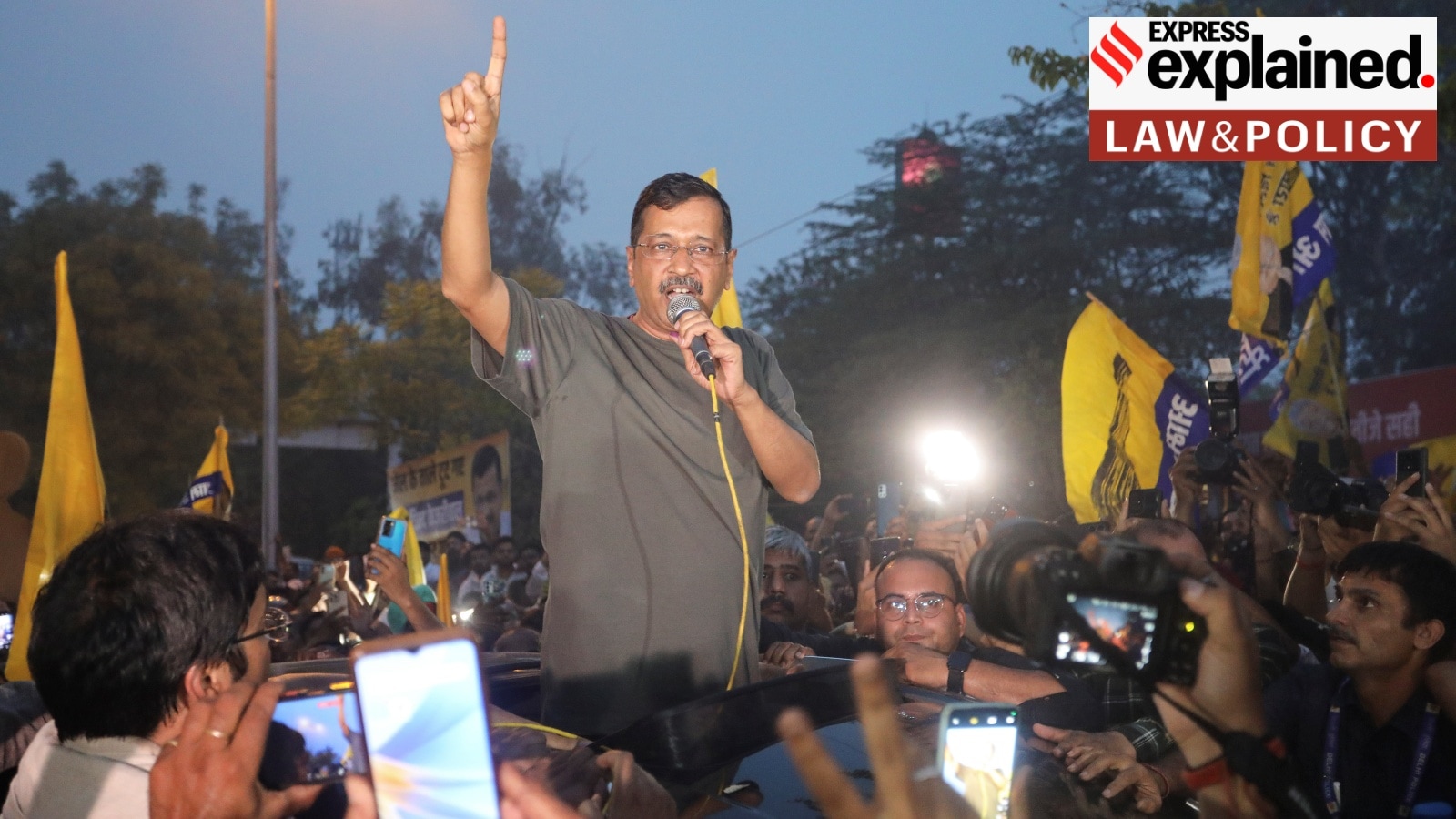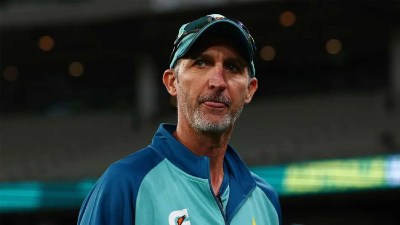Delhi CM Arvind Kejriwal gets bail: What are the bail conditions — what can be their impact?
Kejriwal will have to abide by the same conditions placed on him by the apex court when he received bail in connection with the Enforcement Directorate case on July 12, 2024
 Kejriwal was first arrested by the ED on March 21, 2024, and then by the CBI while he was already in custody on June 26, 2024, in connection with the Delhi excise policy case. (File photo/PTI)
Kejriwal was first arrested by the ED on March 21, 2024, and then by the CBI while he was already in custody on June 26, 2024, in connection with the Delhi excise policy case. (File photo/PTI)The Supreme Court on Friday (September 13) granted bail to Delhi Chief Minister Arvind Kejriwal in connection with the CBI’s complaint in the Delhi excise policy case. However, the Bench of Justices Surya Kant and Ujjal Bhuyan placed certain conditions — Kejriwal will have to abide by the same conditions placed on him by the SC when he received bail in connection with the Enforcement Directorate case on July 12, 2024.
Justice Bhuyan noted that he has “serious reservations” about two of the conditions, but refrained from expressing his views further to maintain “judicial discipline”.
What are the bail conditions imposed on Kejriwal? What impact will they have?
What are the bail conditions?
Kejriwal was first arrested by the ED on March 21, 2024, and then by the CBI while he was already in custody on June 26, 2024, in connection with the Delhi excise policy case. On May 10, the SC granted him interim bail in the ED case in view of the Lok Sabha elections. After he returned to custody following the elections’ conclusion, the SC granted him bail once again in connection with the ED case on July 12.
On both occasions, the Bench of Justices Sanjiv Khanna and Dipankar Dutta placed certain conditions. Along with furnishing a bail bond of Rs. 50,000, they held that while on bail:
- Kejriwal will not be allowed to visit the Office of the Chief Minister and the Delhi Secretariat;
- He shall not “sign official files unless it is required and necessary for obtaining clearance/approval of the Lieutenant Governor of Delhi”;
- He will not comment on his role in the present case;
- He will not interact with any of the witnesses in the case or have access to the official case files.
Justices Surya Kant and Ujjal Bhuyan reiterated these conditions while granting bail to Kejriwal on Friday. The Bench also said Kejriwal shall not make any public comments about the merits of the CBI case, has to be present at every trial court hearing unless an exemption is granted, and fully cooperate with the trial court so the case may be concluded expeditiously.
However, Justice Bhuyan raised doubts about the condition restricting Kejriwal from visiting the Chief Minister’s Office and the Delhi Secretariat, as well as the condition restricting him from signing official files unless it is “required and necessary” for obtaining the Delhi L-G’s approval.
What can be the impact of the bail conditions?
Kejriwal from visiting the CM’s office and the Delhi Secretariat may not present a steep hurdle according to sources in the Aam Aadmi Party. According to senior AAP leaders, while Kejriwal has been barred from going to the Chief Minister’s office and the Delhi Secretariat, Cabinet meetings can be routed by circulation. This means that files with suggestions can be moved, signed by the CM, and ultimately sent to the L-G.
The condition against signing certain files may not hamper Kejriwal’s powers in a significant way either. The National Capital Territory of Delhi (NCT of Delhi) holds a unique position in India’s federal hierarchy. Although it is a Union Territory, Article 239AA of the Constitution provides that the NCT of Delhi shall have its own Legislative Assembly and Council of Ministers (with the CM at the head). If there is a difference of opinion between the L-G and the Council of Ministers “on any matter”, Article 239AA states that the L-G shall refer this to the President of India for a decision and that the L-G can take “immediate action” while this decision is pending if it is “urgent” and “necessary”. The L-G is also the administrator of the government in Delhi.
In this context, though Kejriwal can only sign files where his signature is “required and necessary” for the Delhi L-G’s approval, this includes a bulk of the governance work in Delhi with the exception of the three subjects where the Centre through the Delhi L-G already exercises discretion under the Article 239AA — public order, police, and land.
Senior government officials said that all files are ultimately sent to the L-G for clearance and approval in this scheme of things. “Right from granting permission to cut trees and allowing 24×7 operations of shops to major cabinet decisions, all ultimately require the clearance and approval of the Lt Governor. Because of this clause, we believe that the work of the government will continue mostly as it did before the CM was arrested in March. He, of course, will not be going to the secretariat, as per the bail conditions,” a senior party leader said.
The CM’s signature, or lack thereof, became a contentious issue in August 2022 when Delhi L-G Vinai Kumar Saxena sent 47 files back to the CM’s office as they were not personally signed by Kejriwal before being sent for the L-G’s approval. The Indian Express reported that the L-G urged the CM to sign every file in the interest of smooth and effective governance.
Officials in the L-G office had said then that in Delhi, “the CM is the head of the Cabinet of ministers, so any decision or project by departments or the government goes to the Cabinet for final approval and then the file is sent to L-G as he is the top official. So, it is necessary that files that are being routed through the CMO to the L-G should be duly signed by the CM.”
- 01
- 02
- 03
- 04
- 05






































